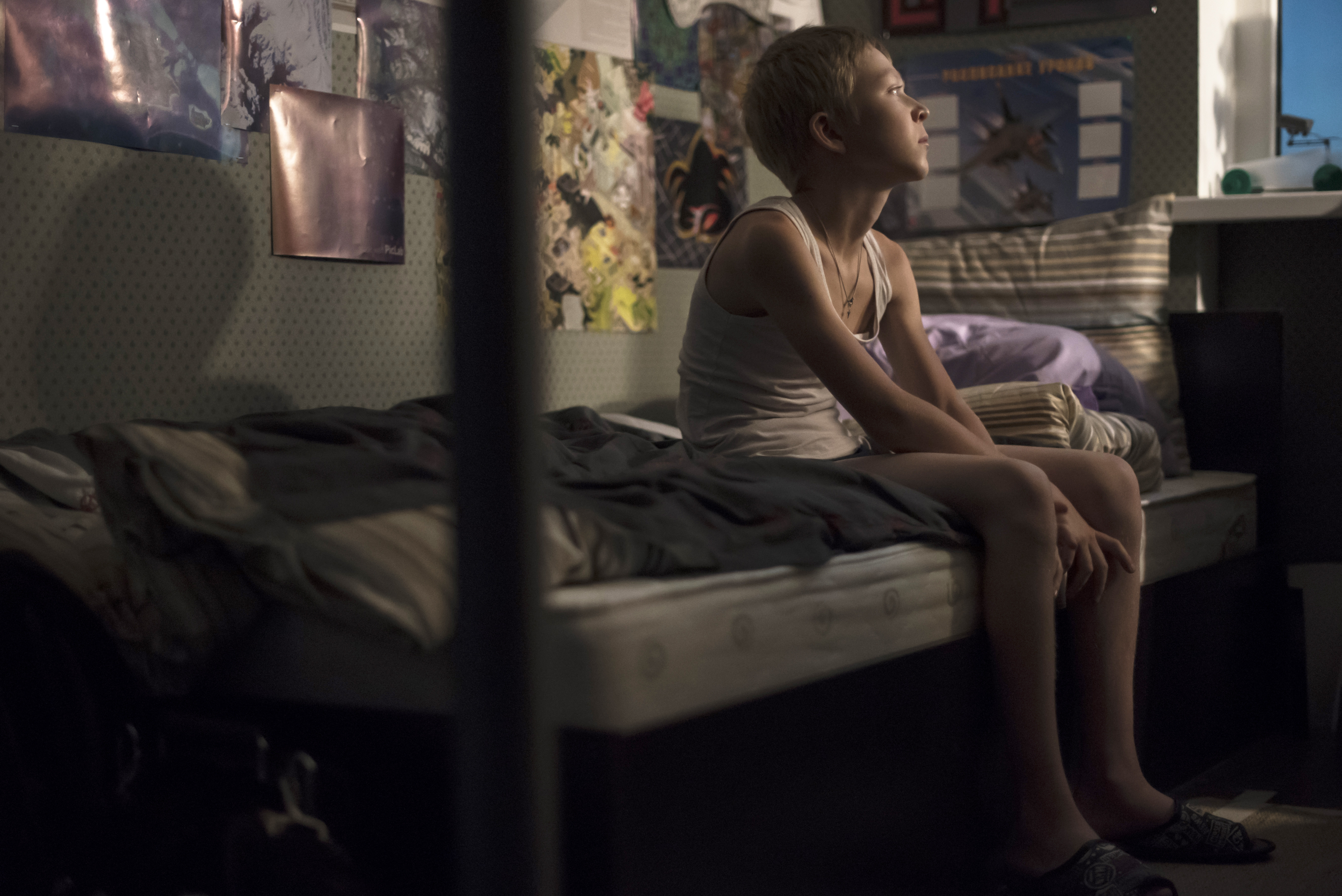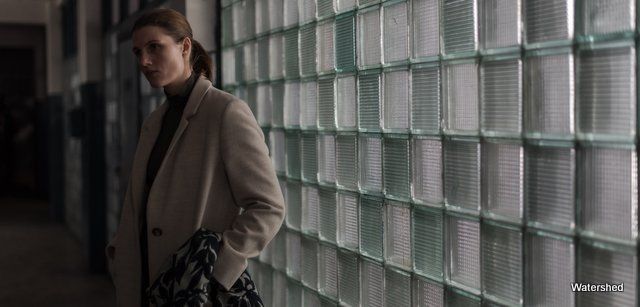At Bristol's Watershed, the director of Loveless spoke about his new, Oscar-nominated film and how the story of a missing child transcends the brutal Russian culture it is steeped in. By Miles Jackson.
The films of Andrey Zvyagintsev offer an invaluable insight into the quotidian livelihoods of Putin’s Russia. Though never flinching from the harsh realities faced by Russians of all social strata, his films rarely fall into the realms of didacticism; Zvyagintsev’s characters feel as authentic as the harshly naturalistic environments they inhabit.
His films are certainly not for everyone; their methodic pacing and crushingly bleak worldview will undoubtedly turn many away. Yet few filmmakers are as skilled in tethering political argument to humanistic tragedy like Zvyagintsev.
Hearing him speak at Watershed earlier this month was a pleasure. Taking to the stage following a screening of his new Oscar-nominated film, Loveless, Zvyagintsev - alongside his longtime producer Alexander Rodnyansky - offered fascinating commentary on the process of making films in Russia that are widely assumed to be direct critiques of Putin’s regime.
Zvyagintsev places immense thought into each question asked of him, often taking several minutes and going on lengthy tangents in the process of answering. Questioned as to what extent he views Loveless as a ‘Russian film’, he responds that he hopes and believes the story reaches beyond Russia.
In an answer that reflected the crushing cynicism of his cinema, Zvyagintsev claimed that the “absence of empathy and coldness of emotion” in the film is something he feels is reflective of human nature beyond merely Russia.
We're thrilled to see The Shape of Water arrive in cinemas. It's not the only awards heavyweight you can see this weekend though! Loveless is nominated for Best Foreign Language Film at the Oscars, and won last year's Cannes Jury Prize. See it at @HydeParkPH and @MediaMuseumPH. pic.twitter.com/tbJFT8qrMm
— Leeds Film City (@leedsfilmcity) February 16, 2018
Indeed, there is a coyness in both Zvyagintsev and Rodnyansky in directly correlating Loveless with Putin’s Russia. Zvyagintsev makes the point that political critique is something inherent throughout the history of Russian art, and were one to go back through Russian painting, literature and cinema one would find countless examples of political dissent. In this respect, Zvyagintsev argued that his films merely follow in the Russian artistic tradition.
Equally as enlightening were producer Rodnyansky’s comments on the process of funding Loveless. Unlike Zvyagintsev’s previous Oscar-nominated film Leviathan, they received no state funding as a result of Leviathan’s massively dividing opinion in Russia with regards to its politics.
crushingly bleak... never flinching from the harsh realities faced by Russians of all social strata
Rodnyansky argues that Russia is a very different country now to how it was just 3 years ago, with the country being at its most divided in 2018 “since the time of perestroika”. Once again, however, Rodnyansky plays down the viewing of Zvyagintsev’s films as political. According to Rodnyansky, they are merely “emotionally honest”.
This is perhaps why Loveless is an affecting piece of cinema. Russia’s political landscape is of course vital in understanding the context of its characters and why they act in such cruel ways, yet Loveless is at its core a deeply human story following irreparably broken people.

Following Zhenya and Bori, a negligent couple embroiled in a bitter divorce process yet still living with each other, the only ray of innocence in the film is embodied in their 12-year old son Alexey, a depressed child constricted by his hateful mother and his unavailable father.
The film’s most crushing, emotionally devastating moment comes in the first ten minutes; Zvyagintsev pans from a medium shot of Zhenya and Boris launching embittered, hurtful slurs at each other to reveal a close-up of Alexey, hidden behind the door, silently bawling his eyes out.
Loveless succeeds in its edifying correlation between the suffering of its characters and the crushing reality of modern Russian existence, regardless of wealth or lifestyle
It is no surprise, then, when Alexey runs away. What is surprising is the callousness of his parents that follows. The couple barely even register their child’s disappearance until it is far too late. Their eventual journey to find him spans through the bureaucratic Russian authorities, the overwhelmingly bleak livelihood of the rural working class and the crumbling remains of the Soviet era.
Ordinarily, this unremittingly abject gloominess of both character and setting would feel banal. Indeed, there are times in Loveless where the crushing cruelty and suffering the characters endure slips into feeling cynical for the sake of it.
Most notably, the film’s painfully obvious indictment of technology and ‘selfie culture’ (which Zvyagintsev ties inextricably and almost exclusively with women) feels like a cheap, crass screed against modernity, lacking any of the nuance present in the rest of the film.
On the whole, however, these occasional dips into unsubtle crudity and unearned misery are fleeting. For where Loveless succeeds is in its edifying correlation between the suffering of its characters and the crushing reality of modern Russian existence, regardless of wealth or lifestyle.
Loveless is at its best when it lets its environments speak for themselves. Set in the oppressively grey suburbs of Moscow, and moving to both the flat, foggy expanse of the Russian countryside and a desolate, unending forest, the film is beautifully photographed by Mikhail Krichman.
Just through the composition of the locales, the film says volumes about Russian society. The climactic scenes set in a collapsing abandoned Soviet swimming pool are breathtaking in their desolation. It’s this unique desolation that Zvyagintsev is so adept at framing.
Loveless is a relentlessly depressing film and whilst it occasionally falls into callous generalisation, it’s ultimately an honest and piercing depiction of Russian society and grief. It’s a gruelling, uncomfortable watch, yet one that is ultimately worthwhile in its unflinching depiction of a country crippled by corruption.
Photo credit: Watershed
What did you think of Loveless? Let us know online:









